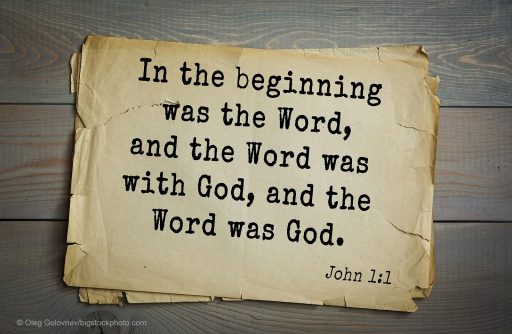
One of the great sources of conflict among religious groups and atheists alike is understanding who Christ is. Was Jesus a man who became God? Was Jesus a biological son of God? Was Jesus God wearing a different name? Owen Olbricht is a scholar who knows biblical Greek and has spent a lifetime studying this issue. He has written a helpful word study for an upcoming Bible dictionary. Here are some points from his word study of “huiou theou”:
The phrase “Son of God” is a translation of the Greek huiou theou and is used many times in the New Testament. It is frequently used with the phrase “only begotten” from the Greek mono and genes, meaning “one of a kind.” “Begotten” is from the Greek genneo meaning “brought forth,” and it usually refers to being born of a mother. An example of this is the reference in Hebrews 11:17 in which Isaac is called Abraham’s monogenes. Monogene is used in reference to Issac but not to Ishmael or the six sons of Keturah, which Abraham also fathered.
The Bible refers to Jesus as the one and only special Son (John 14:31, Hebrews 5:8 and 10:9). Christians are also the sons of God but do not have the huiou theou that Jesus has. (Romans 8:4 and 9:26 and Galatians 3:26). Throughout the New Testament, when Jesus is referred to, it is always as the Son of God (huiou theou). (See Matthew 1:18 and 3:17, Mark 1:1 and 1:11, Luke 1:31-35 and 3:22, and John 1:33-34.)
During the ministry of Jesus, the people that saw His miracles identified Him as” The Son of God” (Matthew 14:33 and 27:54, Mark 15:39, John 1:49, 6:69, and 11:27 and 16:16. The people who witnessed what Christ did were not referencing Jesus as a normal biological son but as a special Son. When Jesus was transfigured, God declared from heaven, “This is my beloved Son” again using words that described Christ as unique (See Matthew 17:5, Mark 9:7, Luke 9:35, and 2 Peter 1:17.)
Owen Olbricht also goes on in his writings to show that Satan and the demons recognized that Jesus was uniquely huiou theou, the one and only Son of God. Even the opponents of Jesus knew that He was not just a human with extraordinary powers and understanding. Olbricht also points out that Paul’s preaching consistently referenced Jesus as the one special Son of God.
Owen concludes his word study by saying, “As God’s Son, Jesus does the same works as the Father (John 5:19), is one with the Father (John 10:30), and has the Father’s appearance and traits (John 12:45 and 14:7-9). Jesus was proven to be the Son of God by God’s testimony (Matthew 3:17 and 17:5), Jesus’ teaching (Matthew 7:28,29 and John 7:46), His resurrection (Romans 1:4), His fulfillment of Scriptures (Luke 24:47-48), and His miracles (John 20:30-31).”
We will let you know when this new dictionary is available.
John N. Clayton © 2020









